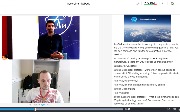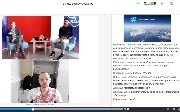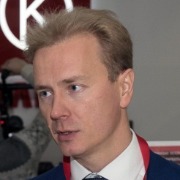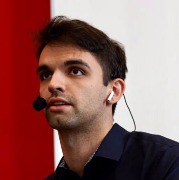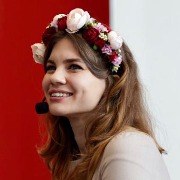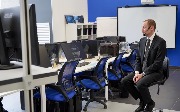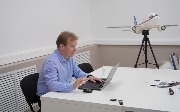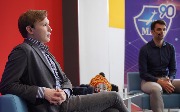International Aerospace Summer School 2020 continues in MAI
More than 150 students from leading Chinese technical universities participate in the educational program. During the summer school at MAI, they study additive technologies in the aerospace industry, as well as cultural and ethnographic features of our country, such as Russian language, culture and history.
Within the course of the basic educational unit, the team of the Additive Technology Laboratory of the Institute No. 9 "Engineering training" under the direction of Professor Andrew V. Ripetsky carried out a number of video lectures on additive technology for the participants of the program. The students got acquainted with the 3D-printing technology and through online sightseeing tours at MAI laboratories got the impression on the developments that are being conducted at the University nowadays.
"Online summer school training is based on the MAI LMS platform. That is why the students have the opportunity to review the lectures as many times as they might need at any moment, – says Andrey Vladimirovich. – the material of the lectures was chosen taking into consideration that the level of knowledge of the program participants is different: from bachelors to doctors of science."
The program participants created the presentation of their teams and studied the subject area in detail and then selected the topic that they will work on as part of their group project. The focal area is the robotic systems designed in order to solve specific tasks. The choice was limited only to the personal interests of the participants. Whether a robot that maintains a technical system, or a courier robot, or a firefighter-robot, either that might be a promoter robot, etc. Now, under the strict supervision of teachers, teams will begin the design project development and the creation of a scheme for reproducing of their system in 3D-printing.
"The concept of the school is based on a two-way online communication. Communication features are primarily based on the audience's reaction and how each team will develop their work on the project. We keep in touch with them, advise and support them." – says Andrey Vladimirovich.
Additionally, the second block of lectures related to the economics of additive technology has been launched, and practical classes are ahead, during them the participants will be able to assess the economic efficiency of their design project as far as the production of prototypes on 3D-printers is concerned. The result of the summer school will be the presentation of projects by participants of the program with a focus on potential investors.
MAI experts who read lectures and give practical classes at the summer school on the main educational and cultural-ethnographic block shared their impressions:
Anastasia Kovaleva, specialist of MAI International Department:
"As part of our familiarization with the Russian language, we gave students general introductory lecture, after which we discussed its content in group communicating informally. Students showed great interest to this topic, asked us a lot of questions in the chat. Among the most popular questions there are the pronunciation and meanings of simple words, as well as the pronunciation of the Russian letters "Р" [r] and "Ж" [zh] /[ ʒ]. Further work on this topic will be developed in a free form. In addition, the audience was extremely interested in Russian cuisine, which is also included in the cultural and ethnographic block of our program."
Veniamin Brykin, the engineer of the Additive Technology Laboratory:
"The first homework task was to prepare the presentation of their teams, which were formed randomly. In a fairly short period of time, they had to get to know each other, determine which competencies each of them would help during their work for the project, and display this in the presentation. In addition, the teams have decided on the purpose of the robot that they will develop.
Guys did very well! I didn't even expect them to be so active. Online communication adds its own difficulties. Despite the tight deadlines – to meet in group chats and create a presentation, the teams took this task very seriously, including developing a high-quality design of their logos, coming up with mottos and taking care of the presentation design. These are, of course, only the first steps. Our students will have sessions of technical and economic justification of their own projects ahead of them, and now that the teams have formed real working groups, they will surely succeed."
